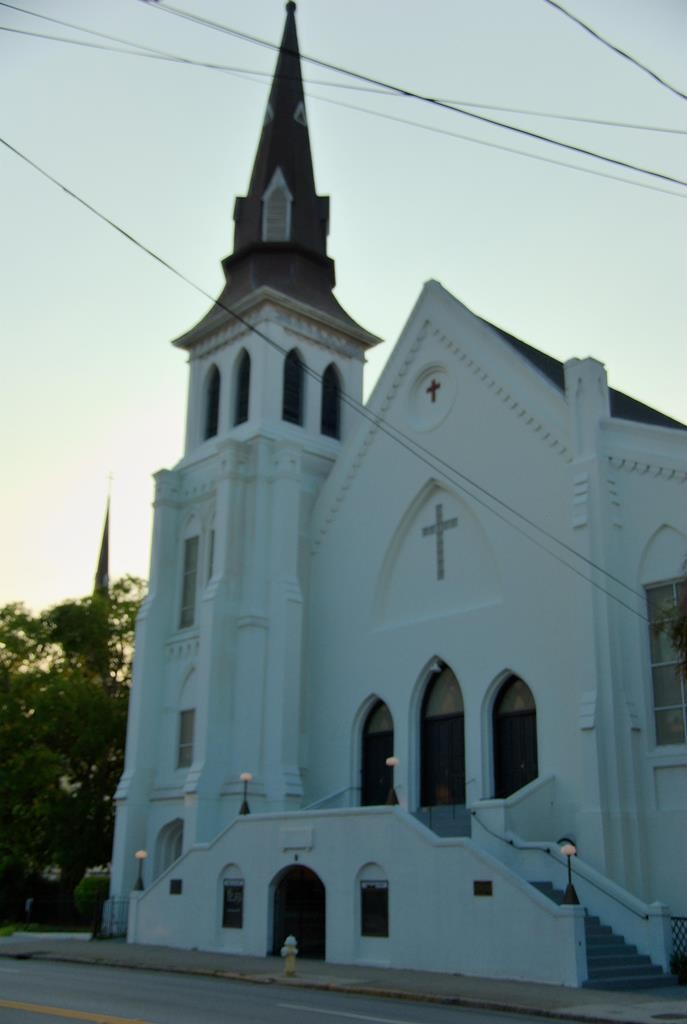
Less than 48 hours ago, a mass shooting took place at the historic Emanuel African Methodist Episcopal Church in downtown Charleston. Since then I have read many articles, Tweets, and statuses about this tragic attack. And, while there is still a lot we do not know[ref]And, as a general rule, I deplore the insatiable need of media consumers for speculative guesswork before there are enough facts to justify reasoned analysis[/ref], we do know this much: this was a terrorist attack motivated by racism and white supremacist ideology. From the Wikipedia entry:
Dylann Storm Roof (born April 3, 1994) was named by the Federal Bureau of Investigation (FBI) as the suspected killer… One image on his Facebook page shows him in a jacket decorated with the flags of two former nations noted for their white supremacist policies, apartheid-era South Africa and Rhodesia… According to his roommate, Roof expressed his support of racial segregation in the United States and had intended to start a civil war…He also often claimed that “blacks were taking over the world”. Roof reportedly told neighbors of his plans to kill people, including a plot to attack the College of Charleston, but his claims were not taken seriously.
Before opening fire, Roof spent nearly an hour with the Bible study group. According to Gawker, “Roof told police he ‘almost didn’t’ kill nine people at Emanuel AME Church Wednesday night ‘because everyone was so nice’ to him,” but eventually he said “I have to do it. You rape our women and you’re taking over our country. And you have to go.” With that, he opened fire “while shouting racial epithets” on the 12 unarmed worshipers. He killed nine of them and intentionally left one survivor. Two others, one a five-year old child, survived by pretending to be dead. During the carnage, he reloaded five times.
Roof was caught yesterday morning after being tipped off by Debbie Dills, who is white. Dills spotted him on her way to work in North Carolina, called her boss (who called police), and then tailed Roof for another 35 miles until police arrived and arrested him. Roof waived his extradition rights and was brought back to South Carolina where conservative Republican governor Nikki Haley has called for prosecutors to pursue the death penalty. I mention the race of Dills and the politics of Haley for a simple reason: I am deeply saddened that many people, perhaps because they are accustomed to the terminology of Critical Race Theory[ref]”White supremacy” means very different things when we’re talking about unconscious microaggressions on the one hand, and bloodthirsty executions on the other. One is not merely a more pronounced version of the other, any more than accidentally running over someone’s foot is the same thing as intentionally hitting someone with your car in an effort to kill them[/ref], seem to believe that the kind of white supremacy behind Roof’s actions is endemic within American society, or at least among white conservatives. It is not. I do not say this to defend political allies, but in the interests of bridging wounds.
I believe we are all in this together. I will not pretend for a moment that we all suffer from racism or sexism or other forms of intolerance and bigotry equally. Clearly we do not, and the long history of violent racial terrorism in the South–which is my home–should not be whitewashed or ignored. I do not believe that we should assume Roof was a lone wolf without first conducting an aggressive investigation to determine what group–if any–lent him material support or advocated his heinous course of action. Calls to take down the Confederate flag are legitimate. So are calls for white people–even those horrified by this action–to engage in some soul-searching about how we view white killers vs. black killers in the mainstream media.
I want to make it clear that in my view there is nothing ambiguous about who Roof is or what he has done. He is a monster who committed an atrocity. I am concerned that there are those who–in understandable shock and outrage, perhaps–believe that Roof has far more allies or sympathizers than he actually does [ref]I’m not saying these sympathizers don’t exist. They do, and it’s despicable.[/ref]. I am worried that an act like this–which, although the black community obviously bears the tragic cost directly–somehow will be seen as political when it is not. In addition to the personal tragedy faced by the victims and their families, this is a blow struck against the dream of equality and tolerance and understanding, and that is a dream that I believe can be shared (or sometimes neglected) by all Americans.
I pray for Roof to face justice, for his victims to be able to find some measure of peace, and also for us as a nation to find a way to draw closer together rather than farther apart.
 cent piece from
cent piece from 
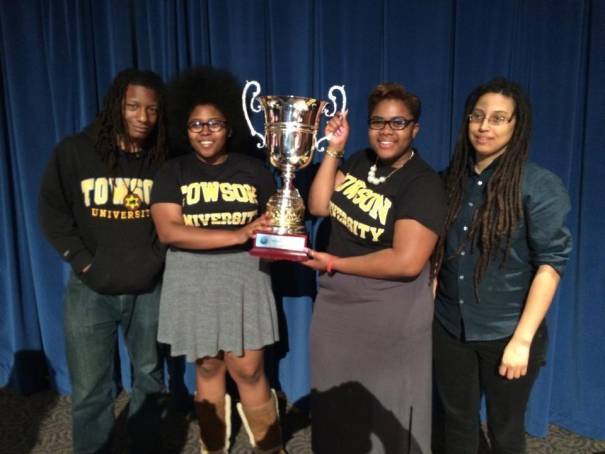
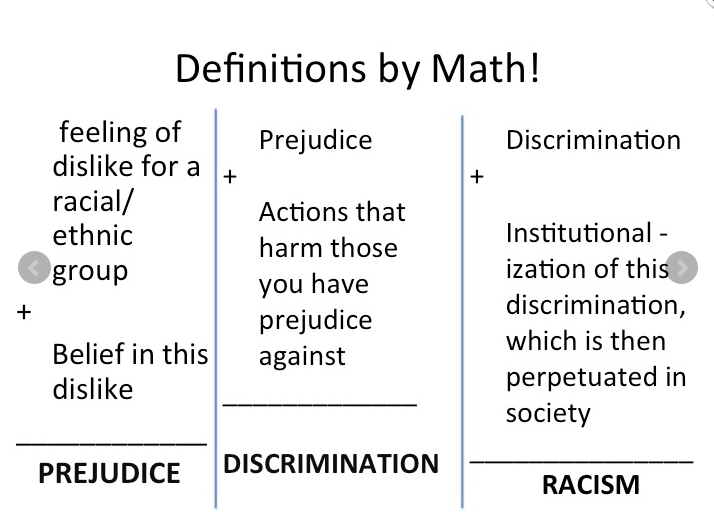
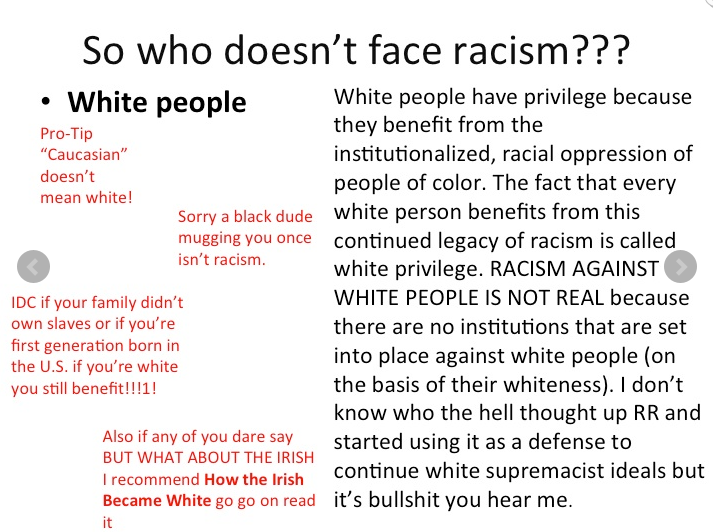
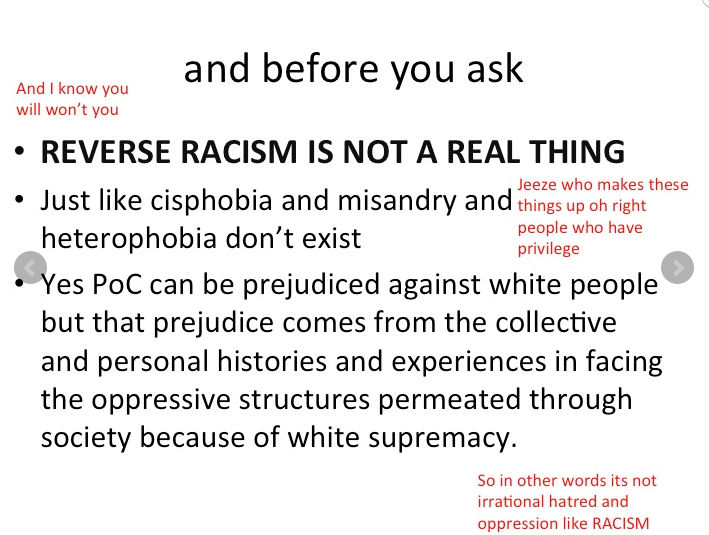
 After reading novelist and political commentator Orson Scott Card’s bizarre “thought experiment,”
After reading novelist and political commentator Orson Scott Card’s bizarre “thought experiment,”